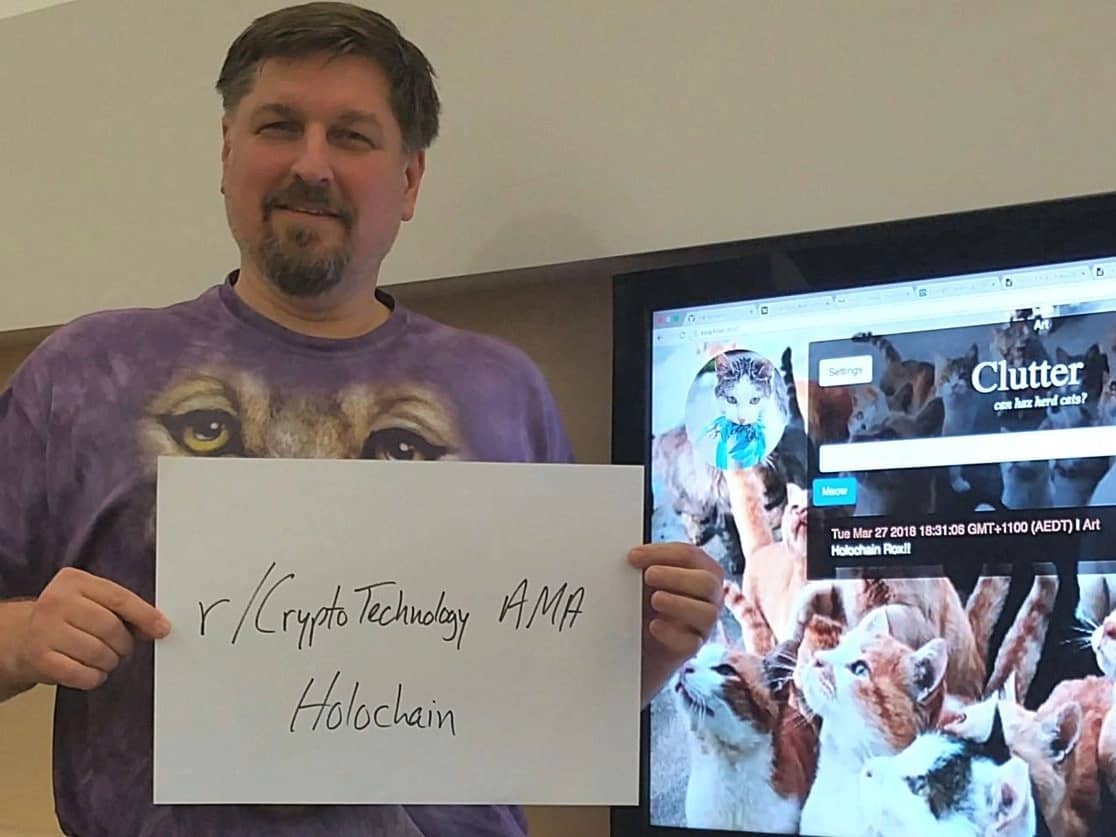Subscribe to wiki
Share wiki
Bookmark
Arthur Brock
The Agent Tokenization Platform (ATP):Build autonomous agents with the Agent Development Kit (ADK)
0%
Arthur Brock
Arthur Brock is the co-founder and systems architect of Holo and Holochain, a framework for creating fully peer-to-peer distributed applications. He has contributed to the fields of distributed systems, alternative currency models, and economic frameworks. His career has been marked by efforts to design decentralized systems aimed at addressing social and economic challenges. [1] [2] [4] [5]
Education
Arthur Brock earned a Bachelor’s degree in Artificial Intelligence and Comparative Religion from Michigan State University. His studies included computer science, linguistics, cognitive psychology, and philosophy, showcasing an interdisciplinary approach to understanding both technological and human systems. He also attended Principia College briefly and completed his high school education at Principia Upper School. [1]
Career
Arthur Brock’s career began in the late 1980s when he worked in artificial intelligence for corporations such as General Motors, Chrysler Motors, and Hughes Aircraft. His projects involved natural language processing and expert systems designed to optimize industrial operations. This early work helped him develop a foundational understanding of complex systems, laying the groundwork for his later involvement in blockchain-adjacent technologies and decentralized systems.
In the 1990s and early 2000s, Brock’s focus shifted toward designing social and economic systems. He became particularly interested in the role of currencies as tools for influencing social behaviors and addressing systemic challenges. During this period, he developed numerous multi-currency systems aimed at solving issues in areas such as collaborative research, resource management, corporate development, and environmental sustainability. These designs often integrated decentralized decision-making and custom incentive structures tailored to specific community needs.
By 2008, Brock co-founded the MetaCurrency Project, an initiative to create tools and protocols for decentralized economic systems. This project emphasized scalable and secure methods for enabling collective intelligence and semantic communication. The MetaCurrency Project became a testing ground for many of Brock’s ideas about decentralized frameworks and economic innovation.
In 2016, Brock co-founded Holochain, a framework designed to enable decentralized applications without the need for global consensus mechanisms. Unlike traditional blockchain systems, Holochain focuses on scalability and energy efficiency, making it suitable for diverse peer-to-peer applications. Following this, in 2017, Brock co-founded Holo, a platform aimed at bridging decentralized applications with mainstream web browsers. Holo allows users to interact with peer-to-peer networks through familiar interfaces, broadening the accessibility of decentralized technologies.
In addition to his work with Holochain and Holo, Brock has played pivotal roles in several other initiatives. He founded The Geek Gene, LLC, a company that developed alternative currency systems, and Agile Learning Centers, a network of self-directed educational environments inspired by Agile methodologies. He also contributed to Emerging Leader Labs, a social enterprise incubator, and participated as a Fellow in the Edmund Hillary Fellowship to collaborate on global projects. [1] [2] [3] [5] [6] [7] [8]
Interviews
Challenges in Fiat Cryptocurrency Design #01
On December 28, 2017, Arthur Brock was featured in an interview on the official Holo YouTube channel. In the discussion, he highlighted his perspective on the challenges and opportunities in designing currencies and decentralized systems. According to Brock, creating fiat cryptocurrencies often leads to issues such as overreach, where founders seek substantial funding upfront without an established track record. He emphasized the risks associated with relying heavily on whitepapers and the high stakes of launching with a single opportunity for success.
Brock contrasted this approach with mutual credit currencies, which he argued provide a more sustainable development pathway. He noted that these systems allow for gradual rollout and proof of concept, enabling projects to evolve through phased development and community participation. According to his vision, mutual credit currencies foster flexibility by not requiring full issuance at launch, thereby reducing financial and operational risks. Brock underscored the importance of community involvement and iterative improvements to build trust and long-term viability in decentralized systems. [9]
Revolutionizing Internet Organization Through Decentralization #02
On February 20, 2018, Arthur Brock appeared in an interview on the CryptoTickerDE YouTube channel. In this conversation, he discussed his views on how blockchain technology can transform organizational structures on the internet. According to Brock, decentralization offers a more efficient alternative to traditional global consensus mechanisms by focusing on local consensus, which resolves conflicts more effectively and reduces bottlenecks.
Brock emphasized the dual nature of blockchain technology, describing it as both a groundbreaking innovation and a subject of speculative risk. He pointed out the need to transition from data-centric to agent-centric models, where individual agents drive interactions and transactions. This shift, he suggested, could create a more responsive and adaptable network.
He also highlighted the potential for decentralized systems to empower communities and enhance user autonomy. However, Brock noted that while blockchain has significant potential, ongoing innovation is essential to address its limitations and maximize its societal benefits. He encouraged further exploration of frameworks like Holochain and underscored the importance of building collaborative communities around sustainable economic alternatives. [10]
See something wrong?
The Agent Tokenization Platform (ATP):Build autonomous agents with the Agent Development Kit (ADK)
